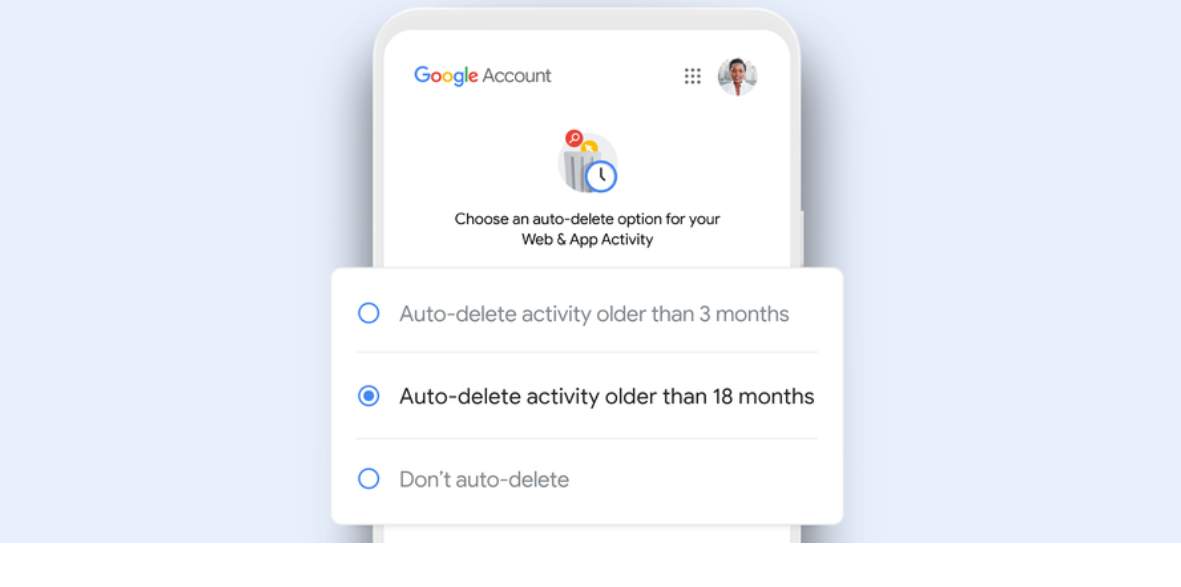Google will now automatically delete people’s search and location history after 18 months, as it attempts to calm concerns from regulators that it controls too much information about individuals.
Ahead of the California Consumer Privacy Act (CCPA) enforcement deadline of July 1, Google announced a number of new privacy updates.
In a blog post, the search giant said users will be able to toggle in their settings to wipe their data every three or 18 months, with the latter now automatically turned on. The two options were first introduced last year, but users had to opt in to the service.
The feature will apply to search history either on web or in-app, location history, and voice commands made through Google’s voice assistant. Youtube history will also be automatically wiped, but after 36 months.
Chief executive Sundar Pichai said the firm was dedicated to keeping private information safe and giving users more control over their data. “We believe that products should keep your information for only as long as it’s useful and helpful to you,” he wrote. “Being a responsible steward of your data means keeping it private. That’s why we continue to make advances in privacy-preserving technologies and invest in thousands of privacy engineers to make our protections stronger across Google products.”
The move follows an investigation launched by the Irish Data Protection Commission in February to explore allegations of whether Google’s data handling was a breach of privacy rules.
Google’s data practices are also under investigation in the US, where the state of Arizona filed a lawsuit last month arguing it is “nearly impossible to stop Google from tracking your movements without your knowledge or consent”.
The new rules will not apply to Gmail, or its storage platforms Photos and Drive.

Commenting on the move, Jed Mole, CMO Acxiom, said: “We’re at a pivotal moment that will define the data economy for the next decade, and right now we’re seeing a real crisis of trust in the way consumers view the way organisations handle and use their data. There is a delicate balance of trust and fear when it comes to data sharing, particularly when it comes to location data, and this is important for marketers to get to grips with as they look to do more with smaller budgets.
“Our research has found that providing location data is of particular concern to UK residents, with just a third (32%) comfortable with doing so – but there are nuances to this. Our qualitative study found that people are largely comfortable with it so long as it’s not too specific – so sharing the county or city they live in rather than their street.
“With more people relying on technology to work, shop and connect with loved ones, the marketing industry is radically reassessing the role and value of data, and this move by Google shows that location data is a particular pain point which needs to be addressed. Of course location data is not always “given” as such but passively collected using technology likes cookies, and it is the controller’s technology that can then bring specific location data up to a wider geographic area.
“With this in mind, as well as the technology controller addressing how much they choose to hone in on location data, for marketers there is an opportunity to build trust by deciding how they use it and by allowing consumers to give approximates, or bands of responses, rather than pushing them to go too granular. This is the difference between a set of data consumers would classify as contentious, and data they feel content with sharing.”

